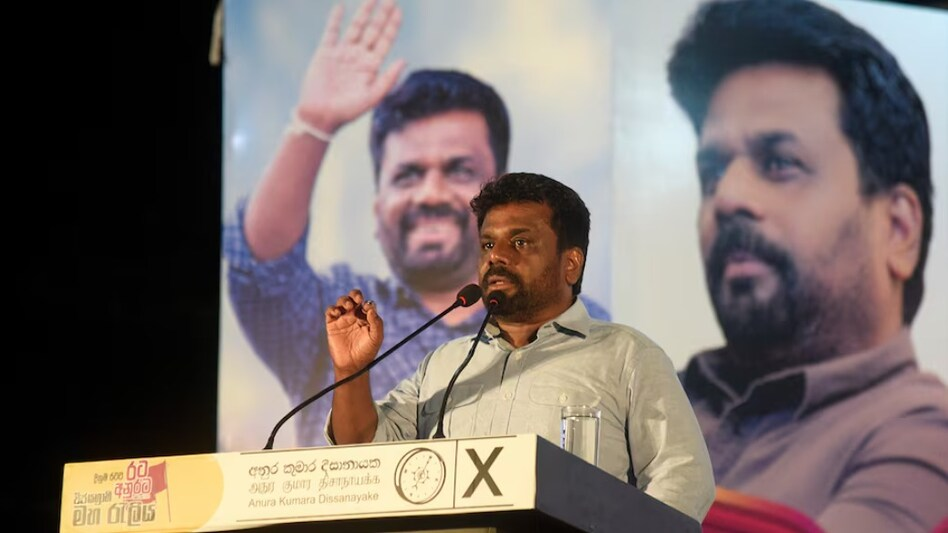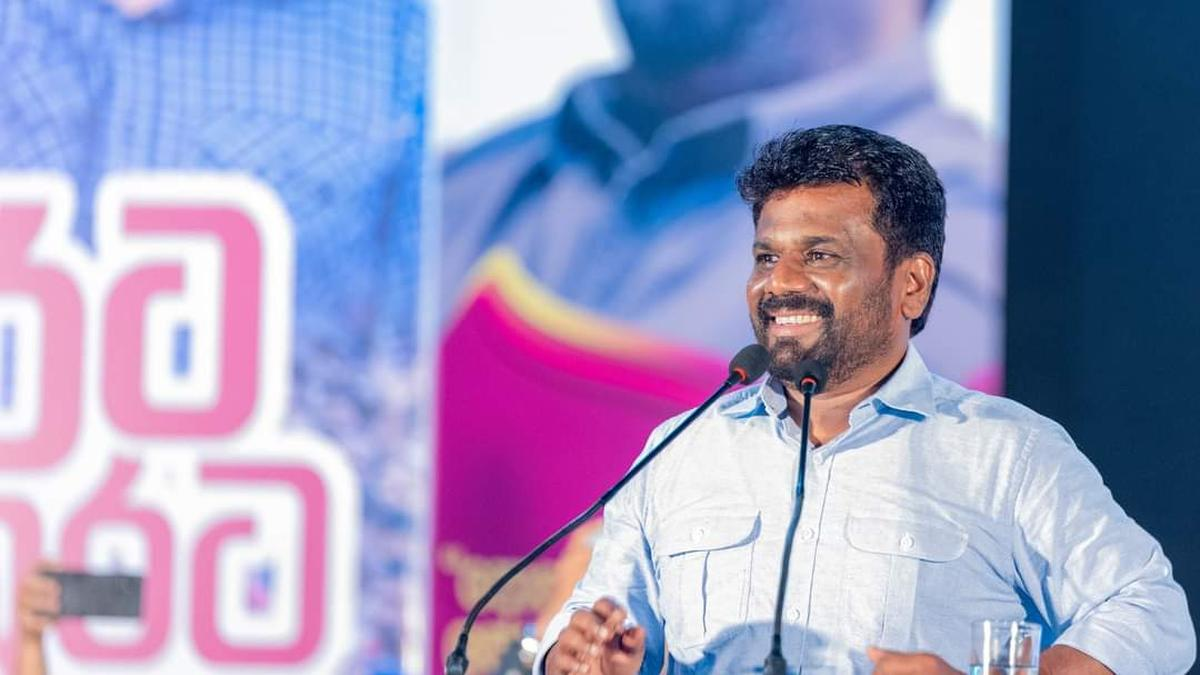Anura Kumara Dissanayake, a Marxist-leaning leader, has been elected as the new president of Sri Lanka, marking a significant shift in the country’s political landscape. Anura Kumara’s victory has generated both optimism and uncertainty as Sri Lanka grapples with the effects of a severe economic crisis.
His election represents the hopes of millions of Sri Lankans who believe in his ability to fight corruption and lead the country through recovery. This moment has brought Dissanayake to the forefront of global attention as Sri Lanka’s newest leader.
Anura Kumara’s Historic Victory
On Sunday, Sri Lanka chose Dissanayake as its new president. His rise to the presidency was historic, with 5.6 million votes, accounting for 42.3% of the total, highlighting the public’s trust in his leadership. Anura Kumara’s popularity has grown rapidly, as his campaign centered on addressing the corruption that plagued Sri Lanka during its economic meltdown.
The election, requiring a second round of counting for the first time in the country’s history, saw him surpass both incumbent President Ranil Wickremesinghe and opposition leader Sajith Premadasa.
Wickremesinghe, who had introduced austerity measures to stabilize Sri Lanka’s fragile economy, was not able to secure public favor, finishing third with just 17% of the votes. Premadasa took second place with 32.8%, leaving Dissanayake the clear front-runner.
The victory by Anura Kumara is not only a personal achievement but a signal that Sri Lankans are demanding change in governance and economic policies, particularly in the face of a crippling financial crisis.
The Rise of Anura Kumara
Anura Kumara’s path to the presidency is notable for his humble background and his connection to the people. Unlike his political rivals, he does not come from a powerful political family but has built his reputation through his association with the Janatha Vimukthi Peramuna (JVP), a Marxist-leaning party.

The JVP, which once led two failed insurrections in 1971 and 1988, has since embraced mainstream politics, and Dissanayake has emerged as its leading figure.
His promises of anti-corruption measures and welfare programs gained widespread attention, allowing him to secure his position as a candidate for the National People’s Power (NPP) alliance.
Anura Kumara’s charisma and leftist policies resonated with the electorate, especially as Sri Lanka continues to suffer from an economic downturn. His ability to speak to the masses, address their concerns, and offer solutions for a brighter future were central to his appeal.
The public support for Dissanayake demonstrates a demand for leadership that breaks from the traditional political elite and seeks genuine change in the country.
Challenges Ahead for Anura Kumara
Despite his clear victory, Anura Kumara faces several challenges as he steps into the role of president. One of the major concerns surrounding his presidency is the approach he will take regarding Sri Lanka’s debt restructuring program.
The International Monetary Fund (IMF) provided a $2.9 billion bailout to Sri Lanka to help it recover from its economic collapse, but Dissanayake has indicated that he plans to rework the agreement.
He has promised to slash taxes, a move that could potentially disrupt the country’s fiscal targets and raise concerns among investors.
During his campaign, Anura Kumara assured that any changes to the IMF program would be done in consultation with the fund, and he remained committed to ensuring the repayment of Sri Lanka’s debt. His ability to balance his political ideology with practical economic policies will be crucial as Sri Lanka navigates its recovery.
Anura Kumara has also vowed to dissolve parliament within 45 days of taking office and seek a fresh mandate through general elections, giving him the opportunity to implement his policies with a stronger backing.
His presidency will be a test of how well he can handle both the economic pressures and the expectations of the public who voted for him. While Dissanayake has positioned himself as the candidate of change, the complex realities of governing a country in crisis will challenge his vision for a new Sri Lanka.
Anura Kumara’s journey from a young Marxist leader to the presidency is a testament to his resilience and ability to connect with the people. As he takes on the immense responsibility of leading Sri Lanka, the world will be watching closely to see if Anura Kumara can fulfill the promises he made during his campaign.
He is stepping into office at a time when Sri Lanka desperately needs strong and stable leadership, and his success or failure will shape the country’s future for years to come.

Anura Kumara’s Vision for Sri Lanka
Anura Kumara’s vision for Sri Lanka is built around the principles of social justice, equality, and a fairer economic system. His focus on the welfare of the poor and his commitment to addressing the root causes of corruption have made him a leader of the people.
During his campaign, Anura Kumara consistently emphasized the importance of state intervention in the economy to protect the most vulnerable segments of society.
One of his key promises is to increase social welfare programs and provide financial support to those hit hardest by the economic crisis.
This focus on improving the lives of the poor has resonated with many Sri Lankans who have faced hardship in recent years. Anura Kumara’s approach contrasts with the austerity measures of his predecessor, which were necessary to stabilize the economy but deeply unpopular with the public.
Anura Kumara’s challenge now is to translate his vision into action. He will need to work closely with international organizations like the IMF to ensure that Sri Lanka’s recovery is sustainable while also delivering on his promises to the electorate.
Striking a balance between fiscal responsibility and social welfare will be a delicate task, but Anura Kumara has expressed confidence that he can lead the country through this difficult period.
Anura Kumara Dissanayake’s election as the new president of Sri Lanka marks a new chapter for the country. His victory symbolizes the desire for change and a break from the old political order.
As Anura Kumara takes on the mantle of leadership, he faces enormous challenges, from managing the country’s debt to fulfilling his promises of greater social justice and economic recovery.
His success or failure will have profound implications not just for Sri Lanka but for the entire region. All eyes are now on Anura Kumara as he leads Sri Lanka into a new era.

